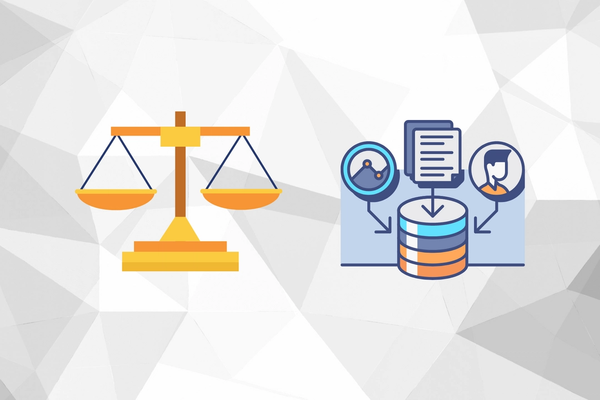
Do I need cookie consent on my website? This question has become essential for website owners ever since GDPR and similar regulations came into effect.
To answer this question, it is important to know what the cookies are, why you need them on your website, and how they act.
In today’s digital landscape, where data privacy is paramount, it is essential to understand the implications of using cookies on your website.
So, in this article, we’ll dive into cookie consent, its significance, and the obligation for a cookie consent banner and policy. By the end of the article, you’ll have a better understanding of your responsibilities as a website owner regarding cookie consent.
Let’s dive right in.
Key Takeaways
Cookies are very important to your website because of new data privacy laws that have been enforced. They can help you to sell better by collecting data about your website’s visitors.
You need to have the consumer’s consent before you start to collect their personal data in most cases.
Non-compliance with the cookie consent policies can be incredibly destructive for the future of your business, as large fines and reputational damages are commonly associated with non-compliance.
What Are Cookies?

Cookies are small text files that your website collects data from your users to enhance their browsing experience. These personal files can range from users’ behavior and preferences to their interactions with your website.
For strictly necessary cookies, you don’t need your visitors’ consent. These cookies are all about giving your website visitors a convenient and secure navigation experience through your website.
With performance cookies, you can collect information about visitors’ experience with your website, like if they encounter any errors. Using this data to improve your website performance is up to you.
You can also use functionality cookies on your website without users’ consent. These cookies save users time with their language preferences and preferred font size.
To track your customers’ browsing habits and interests, third-party advertising networks offer targeting/advertising cookies.
To activate these cookies on your site, you must ensure visitors give explicit consent via a cookie consent banner. The banner should give them acceptance and rejection choices.
Do I Need Cookie Consent on My Website?

Yes, your website needs cookie consent if it uses cookies that aren’t strictly necessary.
Cookie consent is a legal requirement that ensures transparency and protects online user privacy. By implementing cookie consent, you demonstrate your commitment to data protection and respect for your consumers’ choices.
It is crucial to inform your website visitors about the presence and purpose of cookies through a cookie consent banner and cookies policy.
A cookie consent banner is a notification displayed to visitors, informing them that your website uses cookies and seeking their consent. It ensures transparency and empowers users to make informed decisions about their data.
In compliance with cookie consent best practices, you need to use a banner giving clear and concise information about the types of cookies used, their purpose, and any third-party involvement.
Tip: You should provide options for users to manage their cookie preferences through the banner.
Do I Need a Cookie Consent Policy on My Website?

Yes, it is a good decision to have a cookie policy on your website if you use cookies. In many cases, it may be a legal requirement.
A cookie consent policy is a detailed document that outlines your website’s cookie consent practices. It explains the types of cookies you use, the kind of data the cookies collect, and the reason behind using certain cookies.
The cookie consent policy should also explain to visitors what information is being collected, who has access to it, how it is used, and if you share their personal information with any third-party services and their respective privacy policies.
With all this detailed information on your website, you can easily comply with various compliance frameworks, including the GDPR and CCPA.
You will add a layer of transparency when informing visitors about the cookies you use and how they can manage their preferences.
That transparency helps you build trust with visitors and demonstrates your commitment to protecting your customer’s privacy. It will also foster positive mutual relationships.
Cookie Policy vs. Privacy Policy
A cookie policy is different from a privacy policy. A cookie policy specifically provides detailed information about cookies, their purpose, and their impact on user privacy. However, a privacy policy focuses on all data handling practices, including cookies, personal information, and user rights.
You can include your cookie policy in your privacy policy section. It is best practice to have an explicit, separate document for your cookie policy to avoid confusion.
Do I Need a Cookie Banner if I Don’t Use Cookies?
No, if you have a website, which does not have cookies, you are not obliged to have a cookie banner. However, it may still be good practice to have a cookie banner even if your website doesn’t use cookies.
Even if you don’t use cookies, you may still collect certain non-personal information like IP addresses or server logs, and a cookie banner can help you disclose this information.
Having a cookie banner provides transparency. Even though you are not collecting any personal data through cookies. This can enhance the trust and credibility of your website visitors.
By displaying a cookie banner, you can also address any visitor’s concerns or misconceptions. By explicitly stating that you don’t use cookies, you can alleviate any potential privacy concerns and create a positive user experience.
Do I Need a Cookie Policy if I Don’t Use Cookies?
Yes, it is recommended to have a cookie policy. Having a cookie policy that states that you don’t use cookies allows you to be transparent with your visitors about the data you collect and how it is handled, even if you don’t use cookies.
The GDPR principles and other legal frameworks also mandate the presence of a privacy policy or data protection disclosure regardless of cookie usage.
A cookie policy can help educate your visitors about data collection and privacy practices beyond cookies. You can give them a clear understanding of what information you collect, why you collect it, how you process it, and who you may share it with.
With no cookies, you can still have a modified version of the cookie policy to fit your specific data collection practices. Your cookie policy can bear information like the types of data you collect and how you want to use the collected data.
Although you don’t use cookies, you can explain when you share collected data with third parties and how long you retain the collected data. You can also inform the visitors of their rights regarding their data, including the right to access, rectify, erase, and restrict the processing of their information.
Penalty for a Non-Compliance Because of Lack of Cookie Consent
Non-compliance with cookie consent requirements can lead to severe financial and reputation damages. The most obvious consequence of this non-compliance is the high risk of data breach.
In the case of a data breach, you may impose fines and penalties. The fines may vary depending on the severity of non-compliance and the regulatory body governing the issue. Customers taking legal action and filing a lawsuit can also be expected from non-compliance.
Even after paying fines and penalties, your business can be subjected to costly regulatory audits for years to come. In the worst cases of non-compliance, you, as business owners, directors, and executives, could also go to prison for criminal negligence.
Non-compliance can also damage your reputation, as customers will not trust you with their data. With the costs spent on fines, penalties, and lawsuits, it will be hard for your business to make necessary investments.
Tip: Use Captain Compliance’s cookie consent solution to outsource compliance with the latest laws, regulations, trends, and developments in the field of data security and compliance.
Closing
There’s no doubt that cookie consent on your website is essential for ensuring data privacy and compliance with relevant regulations. It provides users with detailed information about the types of cookies used, their purpose, and how they can manage their preferences.
By ensuring compliance with relevant regulations, you build trust with your audience and demonstrate your commitment to protecting your customer’s privacy.
Captain Compliance can help your businesses to build trust and commitment by keeping your site updated with the latest laws and regulations of cookie consent.
For further questions or any assistance on cookie consent, feel free to get intouch with Captain Compliance, your trusted partner in corporate compliance.
FAQs
Is cookie consent required in the USA?
No, there is no cookie law in the USA. However, some state-level laws consider cookies as personal information.
Discover more about cookie consent laws throughout the world here
How can Captain Compliance help with cookie consent compliance?
Captain Compliance provides comprehensive compliance services, including cookie consent solutions. We offer expert guidance in creating customized cookie consent banners, and policies and ensuring compliance with data protection regulations.
Contact us to discuss your cookie consent compliance needs
Can I outsource my compliance requirements?
Yes, outsourcing compliance services can provide efficient and effective solutions for managing your legal obligations. Captain Compliance offers reliable compliance services, allowing you to focus on your core business activities while ensuring adherence to regulatory requirements.
Explore our compliance services and streamline your compliance processes
Do I need a privacy policy on my website?
Yes, you must have a privacy policy on your website If you collect personal information from visitors. Today, many laws require you to have a privacy policy on your site that explains your data-handling practices.
Discover more about data privacy software here
What happens if you don’t consent to cookies?
Some website owners may not allow you to use their websites. Additionally, you may not receive the full user experience on the business’s website. Although you still access the basic features, certain functionality of the sites, like your personalized content, preferences, or targeted advertising, will be restricted or unavailable.